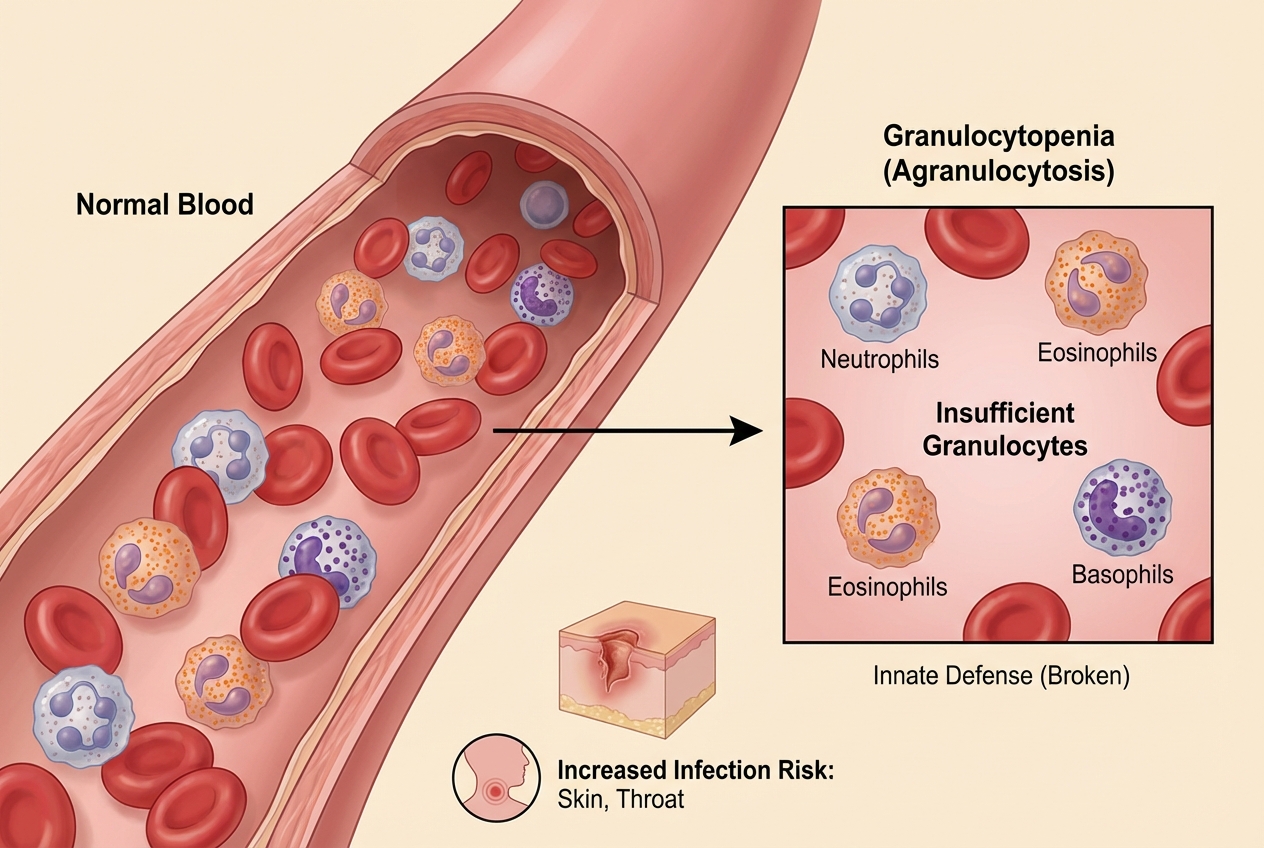
Granulocytopenia refers to a significant reduction in the number of granulocytes, a type of white blood cell characterized by microscopic granules containing enzymes that break down microorganisms. Granulocytes play a role in the body's innate, somewhat non-specific defense against infections, unlike B-cells and T-cells, which target specific antigens. The condition, also known as agranulocytosis, leads to frequent chronic bacterial infections, particularly affecting the skin, throat, and other areas. Despite its name, "agranulocytosis" does not mean a complete absence of granulocytes but rather an insufficient quantity, known as granulocytopenia. This condition can be inherited genetically or occur as part of another disorder.Granulocytes include neutrophils, eosinophils, and basophils, named based on how their granules stain in the laboratory: neutrophils have neutral, subtle granules; eosinophils have distinct granules that stain with the acid dye eosin; and basophils have granules that readily take up basic dyes. This classification system dates back to when cell structures were identified through histochemistry, though their functions were not fully understood. Despite this, the categorization into neutrophils, eosinophils, and basophils remains widely utilized and practical.Granulocytopenia can specifically involve a deficiency of neutrophils (neutropenia), eosinophils (eosinopenia), and/or basophils (basopenia). Sometimes, the term "neutropenia" is used interchangeably with granulocytopenia or agranulocytosis.




